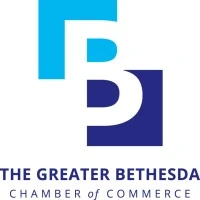
Understanding and applying bookkeeping best practices, even for handling your personal finances, can set a solid foundation for business success. Typically, you might have a couple of basic accounts like checking and savings, along with a retirement plan and some investments. Additionally, there might be several monthly bills and a designated place for keeping receipts for tax documentation.
Key Takeaways on Bookkeeping Best Practices
Bookkeeping best practices are essential for any business aiming to achieve success. Handling your personal finances can be quite straightforward, but bookkeeping and accounting for a business involve more complexities… especially with employees and customers depending on your accuracy and reliability. This is especially true for small and medium-sized enterprises, which can benefit greatly from the myriad of tips offered by accounting and bookkeeping professionals.
Experts in bookkeeping generally concur that for a business to succeed, regardless of its size, it’s crucial to follow these key bookkeeping best practices.
Bookkeeping Best Practices: Effective Accounting Methods to Adopt for Your Business
Deciding on the Accounting Method: A Bookkeeping Best Practice.
Incorporating a best bookkeeping practice into the discussion about choosing between cash basis accounting and accrual accounting can greatly enhance the understanding and application of these methods in your business’s financial strategy.
On the other hand, accrual accounting adheres to the matching principle, logging revenues and expenses in the period they happen, irrespective of the actual payment timings. Though more complex, accrual accounting is often the preferred method for businesses that invoice clients.
There’s also a hybrid option known as the modified cash basis. This approach combines elements of both methods: operating on a cash basis but with the inclusion of Accounts Payable and Accounts Receivable, implying that you record bills and send out invoices.
It’s vital to select the most fitting accounting system for your business before initiating any transactions.
Set Up Robust Internal Management Controls
Implementing best bookkeeping practice and internal controls within your company’s bookkeeping and accounting procedures is essential to minimize fraud risk. For activities involving payments, employ a system of checks and balances. For instance, one employee should prepare checks, another should reconcile bank accounts, and a third should authorize payments.
In terms of mail handling, separate the duties to ensure the person opening the mail is not the same individual managing accounting tasks. The person responsible for mail should maintain a physical log, recording details of received checks, including dates. These checks, along with the log, should then be handed to the bookkeeper or accountant. Utilizing customizable check templates can be helpful in this process, ensuring accountability for both the mail handler and the finance personnel.
Bookkeeping Best Practices: Maintain a Clear Distinction Between Your Personal and Business Financial Matters
It’s crucial to ensure that neither you nor your employees use business funds for personal expenses. Improper allocation of funds can lead to significant cash flow problems, complications in tax filing and auditing, and potential legal issues. This might include losing the protection of limited liability in cases of financial commingling between personal and business finances.
Even in a small business where you might manage all purchases and payments, it’s vital to maintain a strict separation between personal and business finances. This separation should extend to having distinct bank accounts and credit cards for your business. Such a practice not only simplifies tax processes but also helps in avoiding mix-ups, like mistakenly using business funds for personal items like home supplies.
Utilize Accounting Software for Expense Tracking: A Core Element of Bookkeeping Best Practices
Maintaining comprehensive records of all business expenses is essential to bookkeeping best practices. This involves regularly saving and logging receipts, ideally daily or at least weekly. Without robust accounting software systems like QuickBooks, and cloud-based expense tracking tools, managing these tasks can become incredibly time-consuming, especially as your business grows.
In choosing your accounting software, it’s important not to base your decision solely on your current bookkeeping requirements. Also consider the potential of each software system and technology to scale and adapt to your business’s growth and the expanding needs of your back office operations.
Monitor Employee Time to Gain Insight into Your Business's Profitability
For service-based businesses, automating timekeeping and payroll processes can significantly enhance efficiency. Instead of manually entering timesheet data, implementing an automated system for recording project costs and employee hours streamlines data flow into your bookkeeping system.
When payroll is processed in your company, it can be directly integrated into accounting software like QuickBooks. This integration allows for the automatic inclusion of timesheet information. We configure the system to allocate time by economic unit, customer, or job level, enabling you to produce accurate profitability reports by tagging each specific job.
With this setup, you can further:
- Incorporate custom fields into job forms.
- Track the sales representative responsible for securing a job.
- Analyze profitability based on different criteria like industry, team, sales representative, and marketing campaign.
Refine and Enhance Your Chart of Accounts Structure
Many businesses utilize a straightforward, alphabetical chart of accounts primarily for tracking expenses for taxation and compliance. However, a more strategic approach is to employ your chart of accounts as a core component of a management accounting tool. This approach aids in monitoring critical financial metrics such as customer acquisition costs, break-even points, and return on investment for various expenses.
By categorizing your sales and marketing accounts, you can more effectively track the cost of acquiring customers. Separating your General and Administrative (G&A) expenses allows for a clearer view of the baseline operational costs, like what it takes to simply “keep the lights on.” Additionally, delineating product or industry-specific expenses can highlight discretionary costs that can be reduced during economic downturns.
Rigorously Oversee Your Accounts Payable and Accounts Receivable
Maximize the utility of your available cash by meticulously managing your Accounts Payable (AP) and Accounts Receivable (AR). Ensure timely payments of the correct amounts to steer clear of late fees and capitalize on early payment discounts. Issue invoices without delay and diligently pursue overdue accounts to minimize the days sales outstanding.
Regularly Download Banking Transactions and Diligently Reconcile Bank Statements: A Bookkeeping Best Practice for Accuracy
Staying on top of your bank statements is a critical bookkeeping best practice, rather than allowing them to pile up. Consistently balancing them and swiftly addressing any irregularities is key. Allocate time to scrutinize your statements as soon as they arrive to ensure there are no unauthorized transactions, aligning with stringent bookkeeping best practices for business account management.
Conduct Monthly Assessments of Your Financial Data
Transform your back office from basic bookkeeping to advanced management accounting by utilizing your financial statements, management reports, and key performance indicators (KPIs). Develop a comprehensive monthly reporting package that provides insight into the key factors influencing your business’s performance and profitability.
Strategically Prepare for Taxes All Year Round
Maintain regular communication with your tax accountant to ensure you’re properly recording and tracking expenses. This proactive approach guarantees that when it’s time to file taxes, all necessary documents are already in order. Organized tax management not only streamlines the filing process but also aids in making informed decisions throughout the year to minimize your tax liability and prevent expensive penalties.
Maintain Accurate and Detailed Records
Adhering to best bookkeeping practices is paramount when it comes to tax compliance and audits. It’s a common misconception that once taxes are filed, the associated records and documents can be discarded. However, this approach overlooks the critical role of thorough record-keeping in ensuring ongoing compliance with IRS guidelines. The IRS mandates specific durations for which businesses are required to retain various documents, such as tax returns, expense receipts, applicant information, payroll tax records, and operational records. The standard recommendation is to maintain these records for a minimum of seven years, although certain circumstances may necessitate longer retention periods.
Consult with a SecureCFO Consultant on a Regular Basis
Maintain a running list of back office queries and periodically consult with your accounting or bookkeeping firm, not only during tax season, for guidance and solutions. This approach not only prepares you for year-end tax readiness but also helps in steering clear of significant financial missteps throughout the year.
Elevate Your Back Office from Simple Bookkeeping to Comprehensive Business Management Mastery with SecureCFO
SecureCFO tailors its bookkeeping services to align with the evolving demands of your expanding business. Our foundational service packages are designed to establish robust bookkeeping and accounting practices, utilizing the finest technological tools to aid in monthly tasks. These services are scalable, extending up to a comprehensive management accounting solution. This includes a dedicated team of bookkeeping and accounting experts managing daily, monthly, and quarterly responsibilities.
A well-structured back office equips your business to anticipate and counteract risks and market challenges, enhance operational efficiency, refine pricing strategies, and boost profit margins, paving the way for sustained success.
Incorporating these bookkeeping best practices into your daily operations is a crucial step towards achieving financial mastery and ensuring long-term business success.
As a certified CFO, I bring a robust blend of expertise and accreditation to the table, ensuring that my strategic financial management not only aligns with industry best practices but also drives substantial value and innovation in the services sector. My certification is a testament to my commitment to excellence and my capability to navigate complex financial landscapes effectively, making me a trusted advisor in your journey towards greater profitability and business success.
Don’t let the lack of clear goals hold your business back. Contact us today to schedule a consultation and take the first step towards achieving your business goals.
Achieve Your Business Goals with Our Help. Contact SecureCFO Today!




